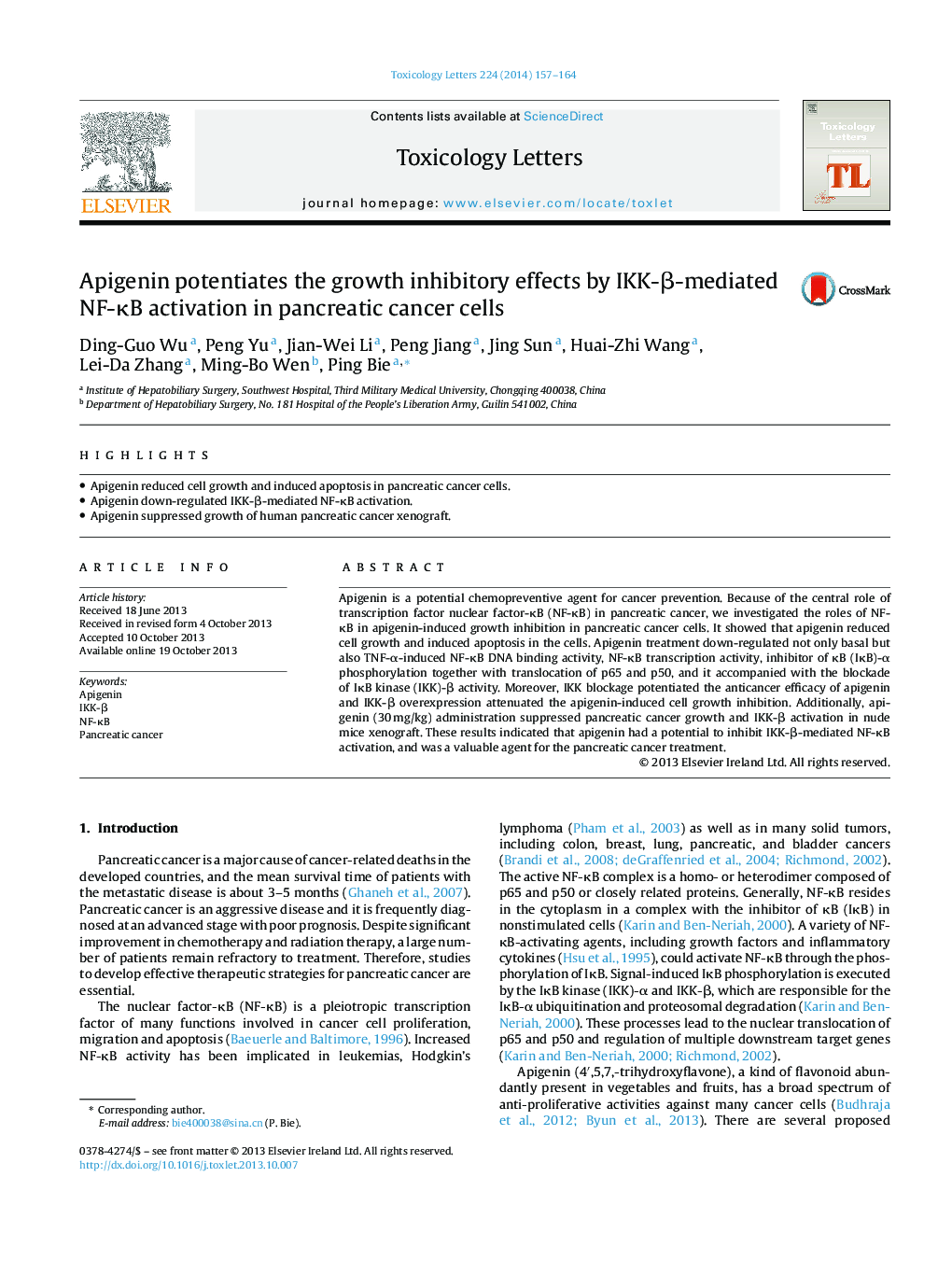| Article ID | Journal | Published Year | Pages | File Type |
|---|---|---|---|---|
| 2599126 | Toxicology Letters | 2014 | 8 Pages |
•Apigenin reduced cell growth and induced apoptosis in pancreatic cancer cells.•Apigenin down-regulated IKK-β-mediated NF-κB activation.•Apigenin suppressed growth of human pancreatic cancer xenograft.
Apigenin is a potential chemopreventive agent for cancer prevention. Because of the central role of transcription factor nuclear factor-κB (NF-κB) in pancreatic cancer, we investigated the roles of NF-κB in apigenin-induced growth inhibition in pancreatic cancer cells. It showed that apigenin reduced cell growth and induced apoptosis in the cells. Apigenin treatment down-regulated not only basal but also TNF-α-induced NF-κB DNA binding activity, NF-κB transcription activity, inhibitor of κB (IκB)-α phosphorylation together with translocation of p65 and p50, and it accompanied with the blockade of IκB kinase (IKK)-β activity. Moreover, IKK blockage potentiated the anticancer efficacy of apigenin and IKK-β overexpression attenuated the apigenin-induced cell growth inhibition. Additionally, apigenin (30 mg/kg) administration suppressed pancreatic cancer growth and IKK-β activation in nude mice xenograft. These results indicated that apigenin had a potential to inhibit IKK-β-mediated NF-κB activation, and was a valuable agent for the pancreatic cancer treatment.
